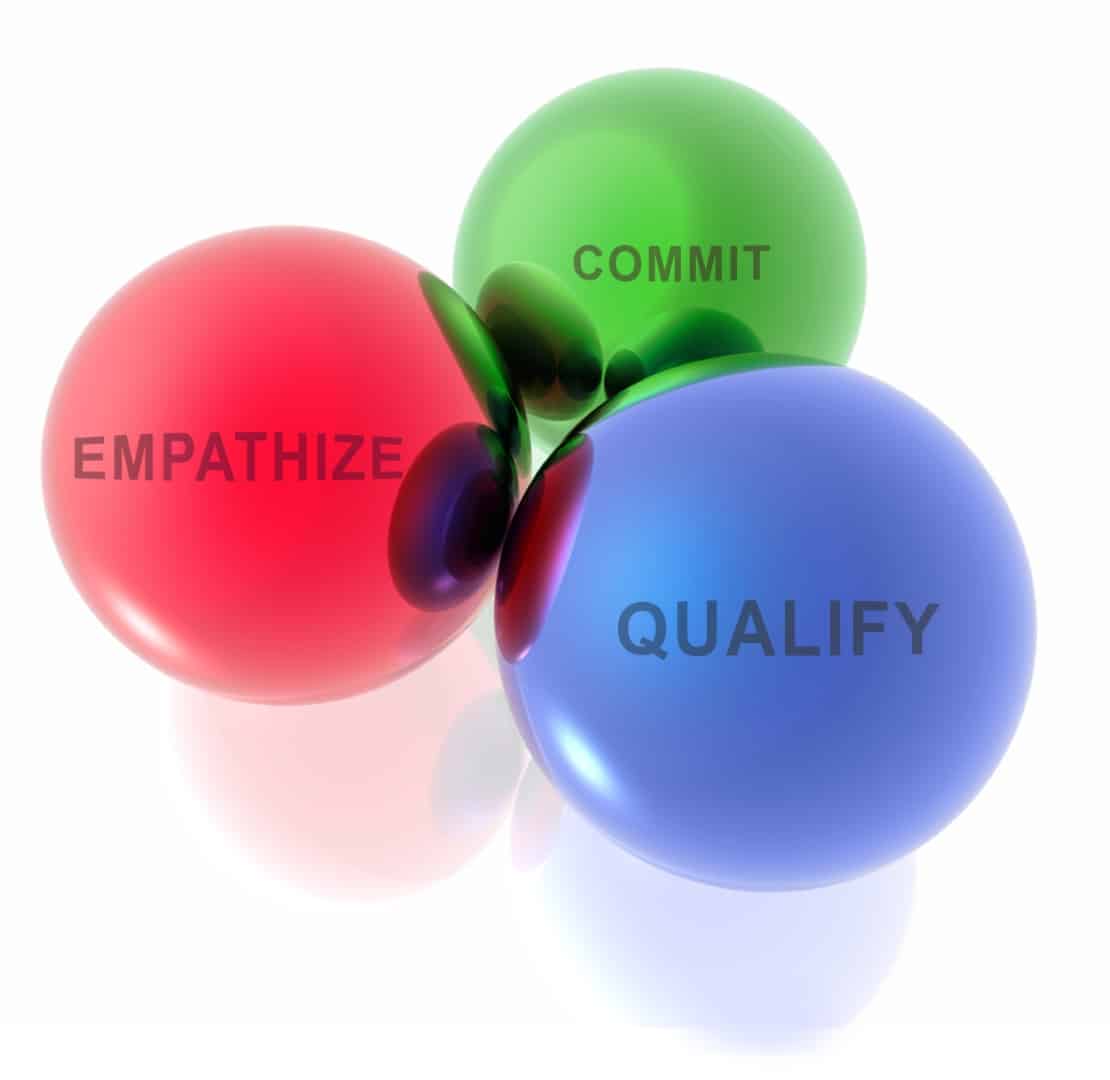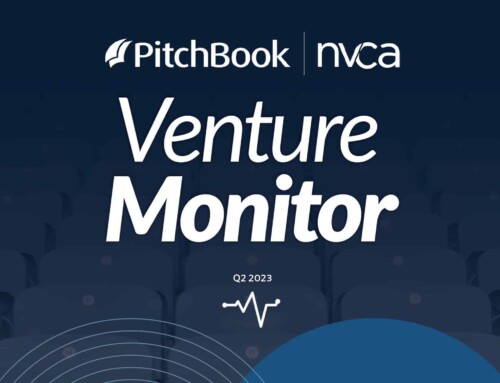“I wish we could close more customers”
“I’ll never be good at sales”
“I hate selling”
If you dislike (or maybe even hate) sales, think you don’t have the personality to succeed in sales, or just want to close more sales for your business, this short article could have bigger impact on your life than you might expect. Sales, after all, is not just a profession, but is a critical skill in many things we do in life – from getting admitted into a great school, dating, raising kids, advancing in a career, buying a car or home, to organizing a fundraiser, and much more.
Sales Experience
I’ve been selling for much of my 35 year career. I joined my first company, Intellution, as a programmer, but on condition with the CEO that I would move into Sales to “learn the business side.” One of the biggest surprises was the change in reaction by people to my sales title versus my previous engineering title. The overwhelming general response was a sudden distrust (of anyone in sales). At that moment, I made it my mission to show that one can succeed in sales without being a slimeball.
In the next few years, I progressed rapidly in sales, building international and mid-west sales using mixed channels of direct and indirect reps, dealers, distributors, OEMs, and VARs, to become the #2 regional sales manager at half the age of most of my peers and reports. Early in my career, I’m thankful for learning a ton from those experienced coworkers. Next, at Lotus (remember “Lotus 1-2-3” and “Lotus Notes” 😊), I closed some of my division’s largest enterprise deals in new territories. At IBM, I managed a system that tracked $100B’s (yes billions) of sales pipeline. At Microsoft, I helped enable their salesforce to unseat the largest (Fortune 50), most entrenched competitive accounts. I built a SaaS CRM platform called Relayte in 1997 before Salesforce. At companies like Qontext, WaveMaker, and Atheer, I successfully led sales and/or marketing.
I’ve also gone through formal sales trainings from PSS (Professional Selling Skills), Miller Heiman, Sandler Institute to Sun Tzu’s Art of War, and have read/studied various sales methods from SNAP Selling to Challenger Sale.
Like many professions, there’s no bottom to the depth of refinement and education to master the craft. However, also like other professions, not all skills are equally important. In fact, most are for the “long-tail” refinement when trying to get those last incremental improvements.
The good news is that there are just a few skills that will get you most of your sales success. In fact, I would encourage even the most experienced salespeople to revisit these basics and ask themselves if they could still improve. After all, improving a core skill could result in greater results than adding multiple incremental skills. As my valued Ironman triathlon coach, Wayne Spaulding, used to say (to us amateurs), “why pour thousands of dollars into an expensive bike to save a few ounces, when you can probably just lose a pound or two off your body weight.”
Selling Can Be Learned
I now work with hundreds of startup founders and CEOs. Many start with technical or domain expertise and quickly realize that any business, by definition really, needs revenue, i.e…sales. Many either don’t like selling, think they’re not good at it, or that it requires some innate personal traits.
Over the decades, I have seen all kinds of successful salespeople, and they come in all shapes and sizes, different personalities, and abilities. The best, however, do three things really well. Plus, like many skills, the better you are, the more fun it can be.
There’s a heap of advice on selling. The problem with books is they need a certain critical weight (literal weight) to justify their existence – i.e., there’s little motivation to simplify a topic, when you need to print a minimum number of pages. And on the Internet there’s plenty of sales advice, but often listing 10 to 30 or more skills to master. Most of this advice is good; however, it’s often not hierarchical. In other words, not all suggested skills are of equal importance. The following three key selling skills will make a huge difference in your selling success…AND the beauty is: they can all be learned!
1. Qualify
If you’ve received almost any sales guidance, you’ve heard about “qualifying the lead.” What does it mean to qualify a lead? The main intent is to determine if you should spend your time and energy trying to sell to that specific prospect. For example, if you’re a cat food salesperson, selling cat food to someone who does not have a cat may not be the best use of your time.
“BANT” (budget, authority, need, and timing) is a common generic framework for determining whether a prospect is worth spending time selling to. Start with BANT. Budget: Does the prospect have enough money allocated to buy your product? Authority: Are you speaking with the decision maker? Need: Do they perceive that the problem you solve is a priority? Timing: How quickly are they likely to buy?
The nuance I want to really instill here is a prudent habit of ruling out prospects that are not a good enough fit, and moving on. “Moving on” requires a healthy supply of leads that include at least some good prospects. Without a healthy, scalable means to generate leads, you may fall into the trap of working really hard (too hard) to close the few leads you do have [Effective lead generation is the subject for another post]. Similarly, If none of your leads are suitable, then qualifying out (eliminating) 100% or keeping the top 10% which will never close are losing propositions.
The most effective salespeople know what qualities, beyond BANT, in a prospect make them the best (e.g., fastest or easiest to close, largest sale) prospects; and they quickly, efficiently, politely determine if a lead is not an ideal fit. They save their precious time and effort for the best leads. Qualify well. Qualify quickly. Qualify early.
2. Empathize
Understand your customer, their needs, their motivations, their influences, etc. This is all good advice. However, I recommend a specific critical framework to focus your empathy – understand your prospect’s “buyer’s journey”. The buyer’s journey is the buying process from the propect’s perspective. It’s the flip side of the sales funnel, which is a seller-myopic view.
Sales tactics that attempt to close a prospect outside of their own buyer’s journey are rarely effective, or ruin what could be a long-term relationship with a customer.
For example, think about how you might buy a new car. When you get the idea, do you run out and buy a car? The stereotypical “used car salesman” may try tactics like creating false urgency to get you to skip steps in your preferred buyer’s journey. Otherwise, you might normally think about your needs, speak with your spouse, ask friends for advice, research online, visit showrooms, etc. before deciding what to purchase.
Good salespeople discover the next step in the buyer’s journey and efficiently assist (sometimes even guide) the prospect to their next step. You can only do this effectively when you empathize and understand the prospect’s needs and process.
3. Commit
What I mean by commit here is that you get the prospect’s commitment before you give anything. Too many people mistake a sales role as either a) adversarial – take what you can get from the customer, or b) subservient – get them whatever they ask for to appease them, mistakenly thinking this will guarantee a sale. Actually, the optimal role is much more of a peer or “collaborative” relationship. Sure, you can be authoritative about a domain subject (as in “challenger” selling). However, many steps in the buyer’s journey may require specific help from you. In fact, “moving the prospect down the sales funnel” (or part thereof) is a key component of most sales roles. Again, develop your empathy to think more about help them along their buyer’s journey (the flip side of the sales funnel).
The best salespeople, though, do not just serve at the prospect’s every beck and call. They confirm first that if they deliver what the prospect asks, the prospect commits to move to the next step in their buyer’s journey. Naturally, they can renege for valid or invalid reasons without much repercussion, other getting requalified by the salesperson. However, blindly jumping through every hoop actually does not serve anyone well. By getting the prospects commitment, they must reflect internally enough to ensure they are asking for something of import to their buying process.
The ol’ dogmatic advice to “always be closing” is actually correct within the right context. However, it does not mean to ask for the order at every encounter. It means moving the prospect to the next step in their process and obtaining their commitment(s) along the way. You can immediately identify a good salesperson when they do this habitually. Great salespeople do all three habitually.
Bonus
If you master Qualify, Empathize, and Commit, you will close more sales. If I had to sell and could only choose three skills at which to excel, these are the three. However, as a bonus in no particular order, here are three more that will complement the main three.
Set Expectations
Managing prospect’s expectations is a valuable accompaniment to Commit. Collaborating with a prospect on their commitment helps them affirm what is important to them, and proactively helping them see what is not important can reduce sales cycle times and avoid scope creep. Ensuring they commit to a result at each ask will help them set their own expectations appropriately.
Listen
Great salespeople listen. It’s virtually impossible to empathize if you talk too much to hear what’s important to the prospect. Even better, ask the key questions that will get to the prospect’s needs and priorities. Saying too much can waste time, bore the prospect, or provide more opportunities for the prospect to object. The best salespeople speak the exact minimum necessary, no more, no less. So many salespeople memorize their pitch and demo and put on their “dog & pony show” before asking a single question. The best salespeople start with polite, concise, prioritized, sincere questions.
Be Timely
Just as excess words are not a salesperson’s friend, time is also typically not on the salesperson’s side. For example, typically, the longer one takes to respond to a new lead, the greater the probability of closure decreases…often exponentially! Literally, minutes make a difference. Think of it this way: When you’re hungry, you call a sandwich shop, but your call goes to voicemail. Do you wait hoping for a call back or call the next sandwich shop? The first sandwich shop just lost your order simply because they didn’t pick up your call or call you back fast enough. Sure, enterprise sales may not move that quickly, but a prospect will start researching competitors just as fast.
Some call it “consultative selling” when you collaborate with a prospect. Today, customer success and lifetime value are much better understood and highly valued. Sales can be daunting and seem imprecise, but the skills to succeed can be learned. Make Qualify, Empathize, and Commit habits, and you’ll be well ahead.
Happy selling!









Leave A Comment